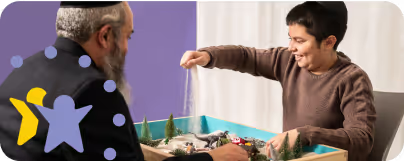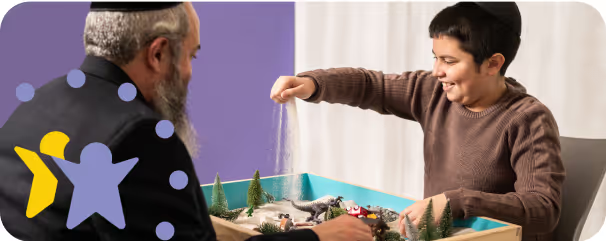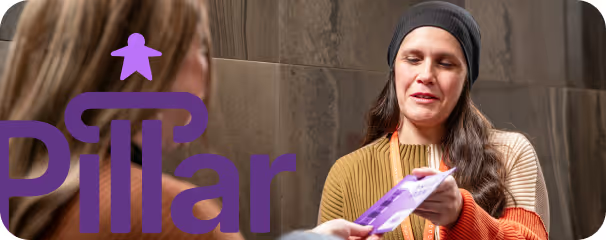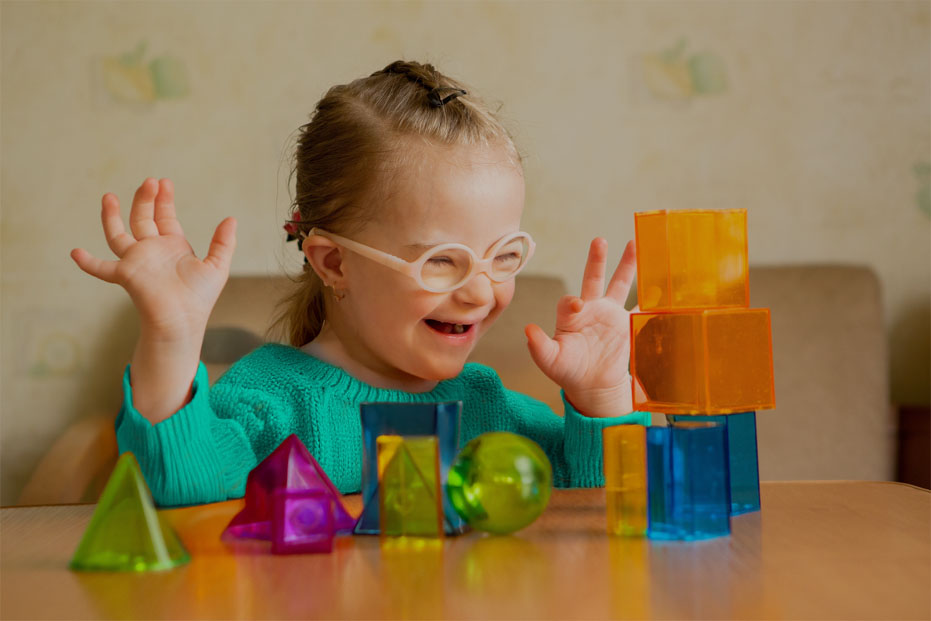Sheindel went to camp!
I can't believe that after all the shopping, packing, organizing, worrying, imagining, panicking, and most importantly, anticipation... we finally got there.
I feel a physical sense of relief. It's funny, because when she's home, I don't feel much stress—it's just routine. But when she's not there, I'm surprised by the sudden sense of freedom.
But let's start from the very beginning.
Fifteen years ago, Sheindel was born, a sweet, healthy baby girl. At sixteen months, she was walking, talking, having fun, and showing off until she was nearly pulled out of the water.
I won't go into the details of the ambulance ride, the three months in the intensive care unit, the time we spent in rehab... but when it was all over, we came home with a completely different baby than before. Sheindel was a strong, excited, and helpless child.
We spent the next few months working to get approval for early intervention, navigating the "new normal" of therapists and volunteers coming and going from the home, learning how to care for a child with many physical needs, and how to live with a night nurse.
Sheindel was my second child, so I wasn't busy with a large family at the time, but looking after a small one is also a challenge, and I had a playgroup in the basement, too. Almost exactly nine months after Sheindel's accident, I had another child, so I did a lot of juggling.
As we left the rehabilitation center, the nurse told me, "Your new best friend will be calling 911." Despite her disability and limitations, Chasdei Hashem has always been healthy—I can count on my fingers the number of ambulance calls and hospitalizations over the years.
There are so many brachos in the competition. We're lucky to have a great school, a fantastic after-school and Sunday program, and so many wonderful girls, families, and volunteers who help make our lives more manageable.
Hashem also bent the barn. I have a calm, happy personality, so I'm much easier to handle. We find humor in everything and laugh a lot! Sheindel also has a cheerful personality and a great sense of humor, even though she can't speak. She loves to have a good time, and we speak to her in rhymes and sing a lot of silly songs. When Sheindel laughs, everyone laughs with her.
I could write a book about the amazing hashgacha we see in our lives. Here are just a few of my favorite examples:
A few years ago, I had a lot of errands to run in the neighborhood. Sheindel was in a wheelchair, and my sister came with me to push the stroller. We walked for a while with Sheindel, the baby, and the other children.
A few years ago, I had a lot of errands to run in the neighborhood. Sheindel was in a wheelchair, and my sister came with me to push the stroller. We walked for a while with Sheindel, the baby, and the other children.
Sheindel's stroller didn't fold, and we had a stroller too. I started to worry, trying to figure it out, and then a car pulled up next to us: a big car with a wheelchair lift!
I've never experienced anything like this before or since. What are the odds that a wheelchair-accessible vehicle will arrive? It was such a hug from Hashem.
Another time, I was only two weeks away from giving birth, and I didn't know what to do with Sheindel when I had to go to the hospital. The girl who usually helped me with her had just gotten married, and another girl who got along great with Sheindel was studying at a seminary abroad. Then, the following week, a seminary student called me: she had taken a two-week vacation and flown home.
"I know why you're home," I told her. "It's because I need you here!"
And so, when I ended up in the hospital, I had someone to call. She came, packed up Sheindel's things, and took her home for a few days.
Hashem really cares about us.
Another time, we had just started feeding Sheindel orally. It was a stressful time. I've had a lot of small children, and it was a tedious task: waiting for Sheindel to open his mouth, counting spoons, trying not to get upset when most of the food came out...
Then my friend called. Her sister's friend had moved into the neighborhood and was bored—she'd always volunteered with children with special needs, but she didn't know anyone who could help. And where did she live? Right across the street from me!
So she started coming to our house for dinner every day, and everyone benefited from it.
It happened more than once that we had plans for Shabbos or a simcha, and before I could pick up the phone and start making arrangements, Sheindel was invited to Shabbos. So many times!
These little hugs help us move forward. Because, of course, there are challenges. Birthdays, for example, are a difficult time. Shayne is fifteen years old and completely dependent on her own needs. She can't speak, though she's responsive and friendly, and loves music, books, and a good joke. At night, she's fed with a G-tube, and during the day, she eats pureed food. She's small for her age, but she's grown a lot in the last year or two, so I'm exercising.
The thought of her growing up and all that that means is a little scary. We try to accept things as they are and not think about the future.
Lately, we've been experiencing seizures, which are likely part of Sheindel's maturation process. This has been really concerning to me: when she seems disengaged, we quickly start playing music or singing to see how we react. I think it's just a passing phase.
But despite the difficult moments for me, I always think that in Sion, She is trapped in her body; she can't tell us if she's uncomfortable, and she can't share her opinions, even though she certainly has them. She can't shoot a fly or push the hair out of her face. She can't tell me if she's hungry, thirsty, tired, cold, bored, or upset. She can't dance to her favorite music, choose her clothes, or tell me what happened on the bus...
One Motzaev Shabbos, I was getting ready for a social event for mothers of children with special needs. And I thought to myself: Seriously? I just had a great time on Shabbos, snacking, curled up on the couch, while Sheindel lay on the floor or sat in a chair, depending on others, patiently awaiting entertainment, food, or personal hygiene—and I'm the one being treated to a party?
That's why I'm grateful for the opportunity to send her to camp. For me, it's relaxation, but more importantly, for Sheindel, it's complete fun and entertainment.
The first year she left, I wrote her the following poem, which I will finish:
Dear Sheindel,
Now that the time has come and you are actually leaving
My emotions, fears and love continue to grow
Some of you, I wish you could leave
And others that I don't mind getting rid of
When you scream so loudly that the walls shake
This is definitely something you could handle!
But I will really miss your little soft cheeks.
I would keep them in my pocket so I could kiss them
Your sweet little hands that I love so much
I put it under my pillow so I could pet and touch it.
Constantly feeling guilty when you just lie on your back
Put it away and never return it.
Your nurses, whom I can do without for a while.
But do you think I can do without your smile?
Your excitement when Tatty comes home and puts you to bed
You giggle when you read familiar books.
Your delight when you hear your favorite song -
Are you sure you should take them with you?
I won't miss feeding and especially what comes after
But oh, will I miss the fun and laughter?
But since it's a package and all or nothing,
We'll let you go because we know you'll have fun.
And we will look forward to when summer is over!


















.avif)




.avif)

.png)











